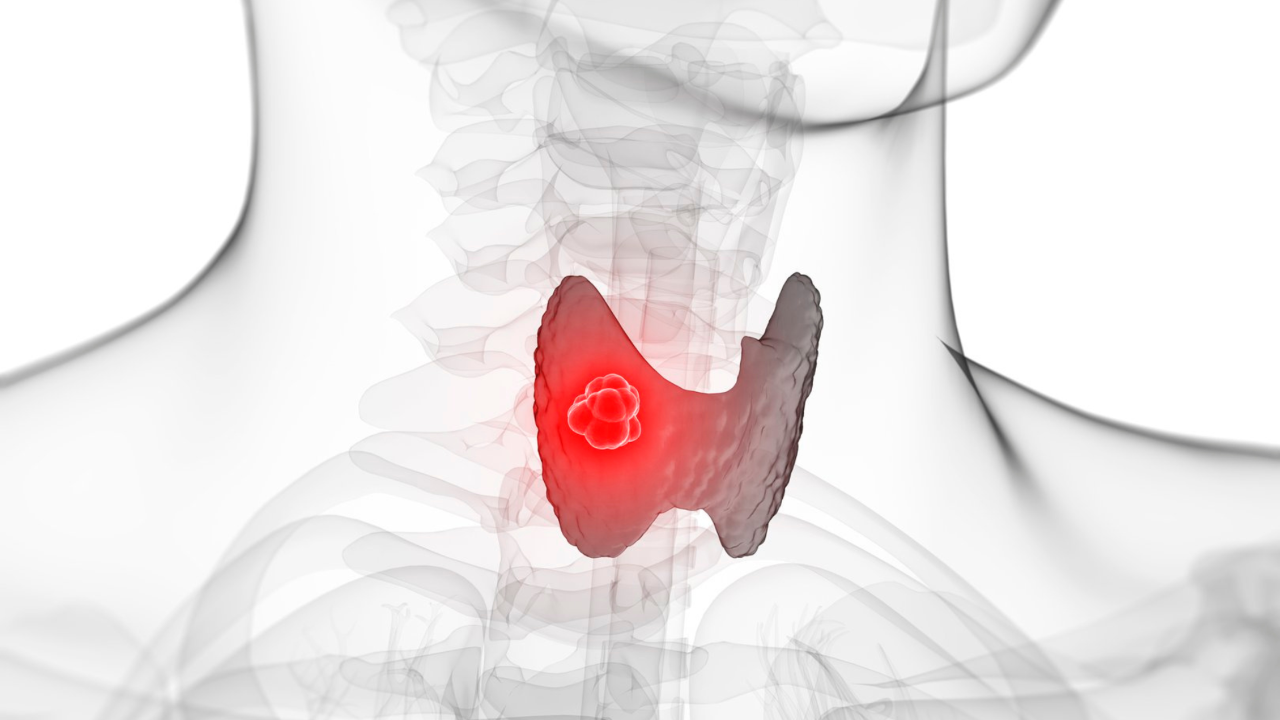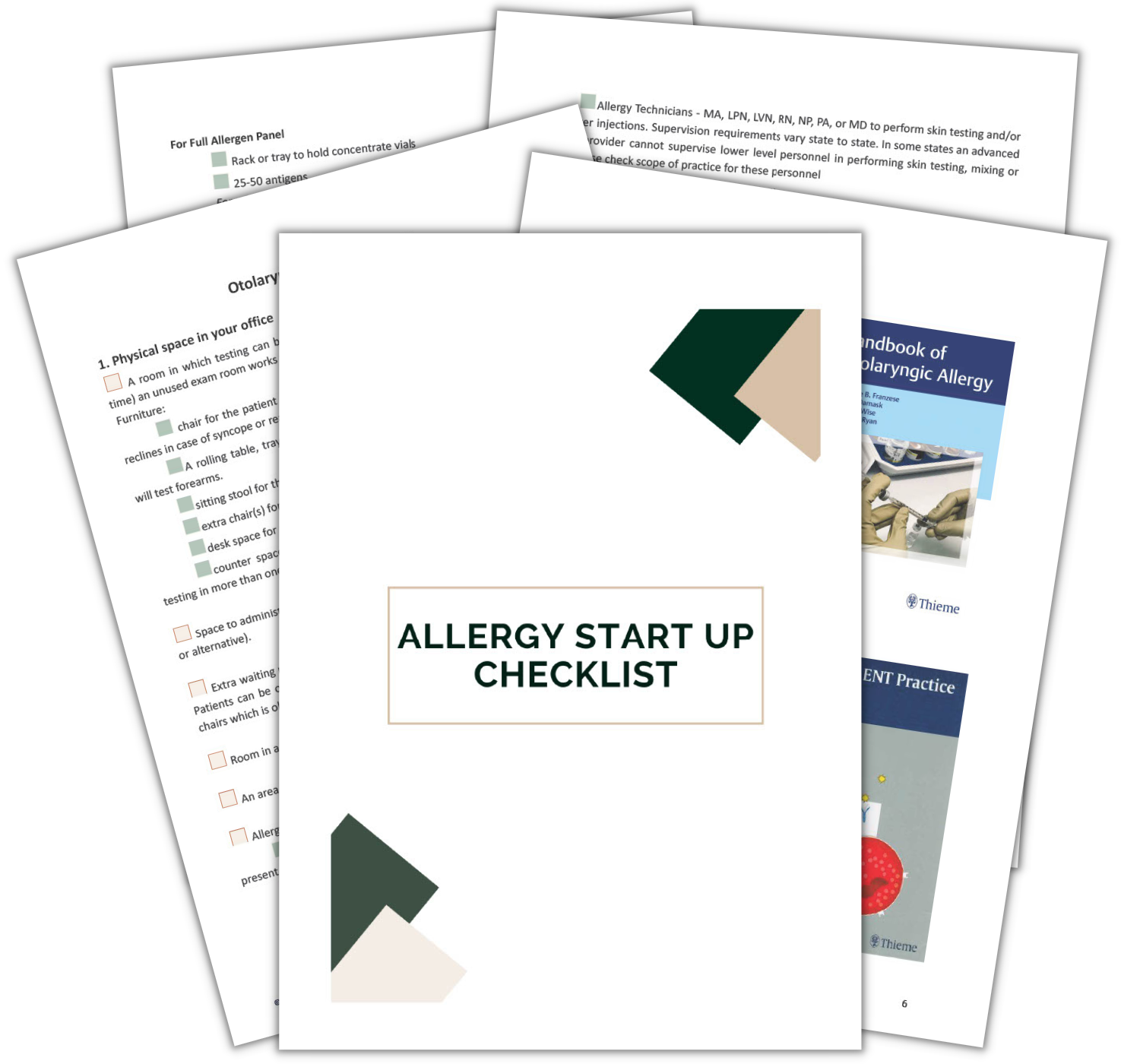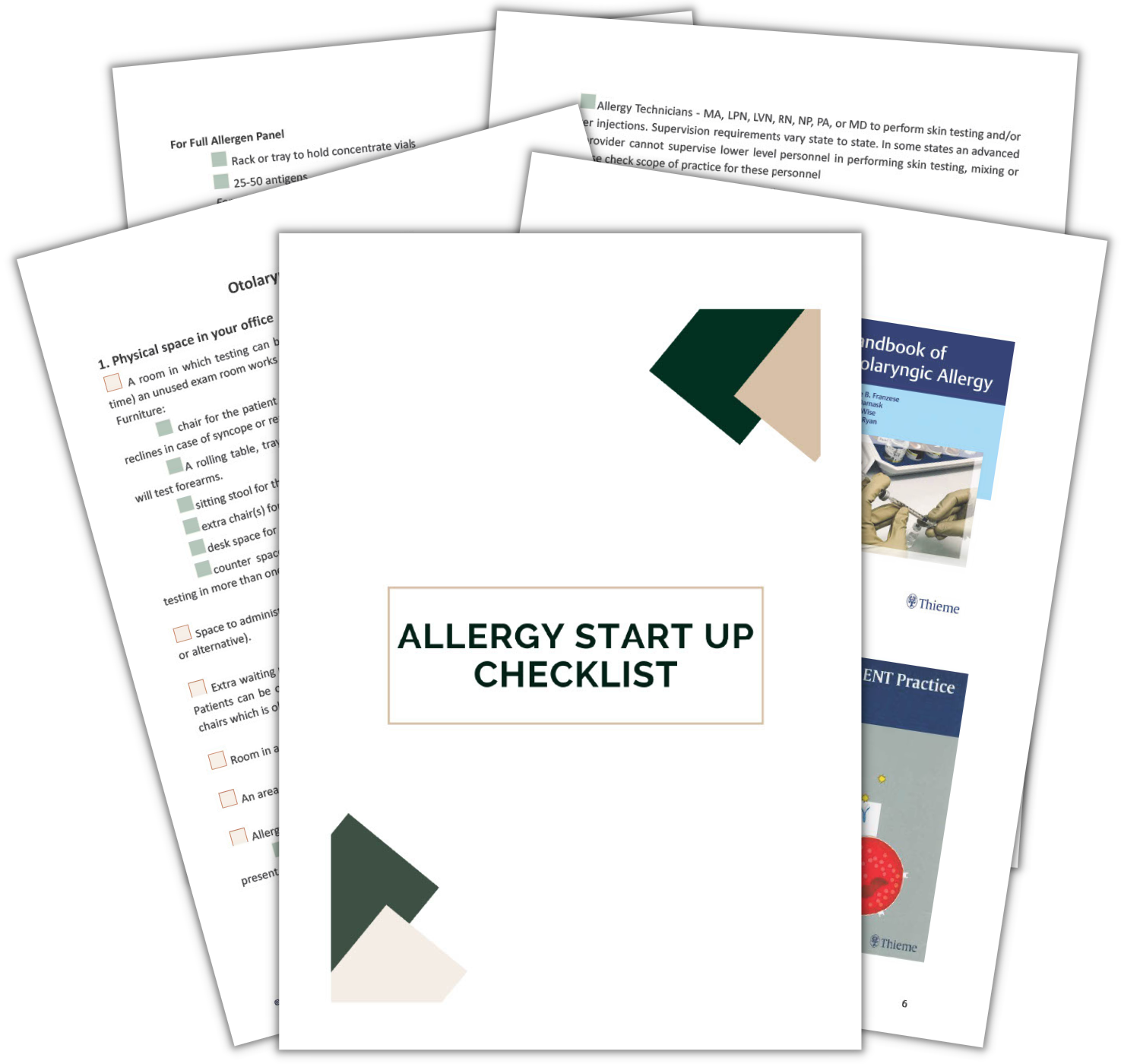What does THYROID have to do with ALLERGY? (Part 1)
Feb 09, 2023
Several doctor friends have recently expressed an interest in my method for optimizing thyroid for allergy, or any patients who don’t feel well and would like to.
Hormones are a complex subject. Today’s blog will address this in as concise a way as possible without leaving out important details, but of course, thyroid is only one component of the very complex human endocrine system, without which we would not be alive. This discussion is aimed at physicians. Please remember that while I am a physician, I am not your physician, and this is not medical advice. Please seek the attention of your personal physician for any medical condition you may have. I am unable to answer individual questions about medical care outside a doctor-patient relationship.
Over the course of years of treating allergy and thyroid in my work as an otolaryngologist, I came to recognize some commonalities. Particularly in patients with both problems, treating one would dramatically improve treatment response to the other. Once patients are eating clean, have their thyroid and hormones under control, and are away from household toxins, many are no longer bothered much by allergy or recurrent chronic upper respiratory symptoms. Those that still are - for example, if they want to keep pets, do really well on allergy shots or drops, where they didn’t before. To explain what I mean by thyroid under control, let me describe a bit of my personal journey in this regard.
This was me as a teen: I was exhausted and cold all the time. Frequently sick with sinus or other upper respiratory illnesses. Needed more sleep than everyone else. To the point of not doing as well in school as I "should have". I would go to bed freezing and wake up drenched in sweat. This went on for years. My T4 and TSH were never "abnormal", meaning out of reference ranges, more on reference ranges later. I was never overweight. But I had low body temperature and low blood pressure, as low as 86 over unmeasurable. Passed out a few times in med school before I learned to just squat down. I got ridiculed for it. I always thought I was just lazy. Would get sick every vacation in residency when the adrenaline would seep away.
I was in solo practice when I finally attended a lecture on hormones (at an allergy conference). The lecturer was a big unconventional thinker- an early adopter of the cash practice model for wellness. This lecture was about his thyroid patients and how many of them didn't have abnormal labs but did fantastic when they took Armour thyroid. He did not seem to understand WHY and it didn’t matter so much to him, just the results. BUT… The patients he described were me, in a nutshell. So I got my gyn to prescribe Armour and it felt like a miracle to me. Anyway it was a long time later when I found an integrative medicine /ENT/allergy colleague who explained what was going on to me in a way that made sense and is clinically useful.
It goes like this: T4 is made in the thyroid and stored. It circulates to the body cells where it is converted inside the cells to active T3 by an enzyme called 5-prime deiodinase. It moves to the nucleus where it binds to T3 receptors and does its thing. Makes you burn calories for body heat and energy, balances your immune system among other things. But - the receptors for T3 can be bound and blocked by another metabolite of T4 called reverse T3. If you have too much reverse T3 compared to active T3, no matter what else is going on your symptoms will be hypothyroid.
You have probably seen these people. Outward signs include:
Their tongues, wrists and ankles are thick and puffy, eyebrows thin or gone on the outside corners, dry skin but pale and clammy, see their scalp through the top of their hair. (80-90% women).
Many are overweight but many are not.
You check TSH, “fine” but frequently over 1.5. T4 - fine, Free T3 in reference range but usually lower end.
History and physical elements will classically be those of hypothyroidism, including low pulse, sometimes low blood pressure (but can also be high), low body temperature.
Fatigue, sleepiness despite adequate time in bed. Constipation, sometimes severe. PCOS. Infertility or unexplained and repeated miscarriages.
Some weird issues can also be related: chronic urticaria, vertigo unexplained by other medical conditions.
There are several situations that trigger elevations in reverse T3. The one I think I have is a genetic defect in the 5'deiodinase enzyme that produces T3. The reason Armour thyroid worked for me is that it has an 80/20 ratio of T4 to T3, which for some people is about right. RT3 synthesis is a parallel pathway and is overproduced in that scenario by a different enzyme.
RT3's metabolic/ evolutionary purpose is to protect us:
- From hyperthyroidism in Graves or other situations of thyroiditis.
- In a starvation or severe illness/injury situation to slow our metabolism down to block T3 so we don't just burn up all our calorie stores. This is seen in critically ill patients in ICU and in that scenario is called “Euthyroid Sick Syndrome” or “Nonthyroidal Illness”.
There are several other situations that can trigger elevations of RT3:
- When people fast it shoots up and is very slow to come back down. It's a big reason why calorie restriction diets fail so often. This may be a main mechanism for shifts in "Metabolic set point".
- I have seen it in patients after gastric bypass as well, and is also responsible for a good deal of the weight regain issue these patients face.
- Consistent lack of quality sleep.
- Chronic stress, "adrenal fatigue"
- I have seen one patient where it happened because she took botox for headaches and it seeped down and paralyzed her ability to swallow for several months. She went on tube feeds but it was already too late.
- For some reason beta blockers also trigger this. Other drugs such as Amiodarone, ADD meds.
- One last thing- too much Synthroid. (T4) Consistently I see people on way too much. And their freeT3 is low normal and RT3 is high.
There are lots more to this topic, so stay tuned. An ongoing lecture series is actually available here on the website. https://www.allergyaccessmd.com/new-endocrinology
To get notified about the next installment, sign up for my email list here. The first thing you will get is a patient handout about allergy medications, but you might find that useful as well.
Yours in health,
Dana Gibbs, MD




